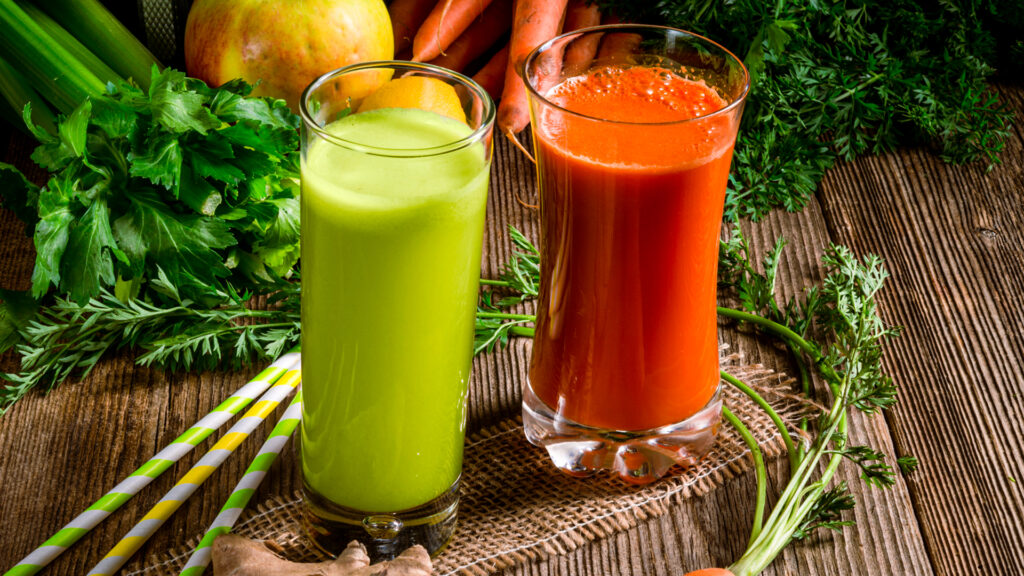Running is a demanding physical activity that requires proper nutrition and hydration to support performance and recovery. Juicing, with its abundance of vitamins, minerals, and antioxidants, can be a valuable addition to a runner’s diet. In this article, we will explore the benefits of juicing for runners and provide valuable insights into how juicing can enhance your running experience. So grab your favorite fruits and vegetables, and let’s dive into the world of juicing for runners!
The Benefits of Juicing for Runners
Juicing offers a convenient and efficient way to consume a variety of nutrient-dense fruits and vegetables in a single glass. By extracting the juice, you can access the vital nutrients and enzymes present in these plant-based foods. Let’s take a closer look at the advantages juicing can bring to runners:
- Increased Nutrient Absorption: Juicing allows your body to quickly absorb the nutrients from fruits and vegetables without the need for extensive digestion. The concentrated liquid form of the juice enables efficient nutrient absorption, providing an instant energy boost.
- Hydration and Electrolyte Balance: Proper hydration is crucial for runners to maintain performance and prevent dehydration. Juicing can be an excellent source of hydration, especially when incorporating hydrating fruits and vegetables like watermelon, cucumber, and citrus fruits into your juices. These natural electrolyte sources can help replenish the minerals lost through sweat during a run.
- Amped-up Antioxidants: Running puts stress on the body, leading to the production of free radicals that can cause oxidative damage. Juicing is an excellent way to load up on antioxidants, such as vitamins A, C, and E, which can neutralize these harmful free radicals and support overall health.
- Support for Muscle Recovery: The intense physical demands of running can result in muscle soreness and inflammation. Certain fruits and vegetables, like tart cherries and ginger, possess anti-inflammatory properties that aid in muscle recovery. Incorporating these ingredients into your juices can help reduce exercise-induced inflammation and promote faster recovery.
- Improved Digestion: Digestive health plays a crucial role in overall well-being and performance. Juicing can provide a significant boost to digestion by delivering fiber-rich foods like kale, spinach, and apples. These fiber sources can aid in maintaining a healthy digestive system and regular bowel movements.
Now that we understand the power of juicing for runners, let’s address some common questions related to this topic.

FAQs about Juicing for Runners
Is juicing a suitable replacement for whole fruits and vegetables?
No, juicing should not completely replace whole fruits and vegetables in your diet. While juicing can offer a convenient and concentrated source of nutrients, it’s essential to include a variety of whole foods to ensure a well-rounded intake of fiber and other beneficial compounds. Incorporate juicing as a complement to your regular diet, rather than a complete replacement.
What are some recommended fruits and vegetables for juicing as a runner?
When it comes to juicing for runners, incorporating a mix of fruits and vegetables is key. Some excellent options include:
- Leafy greens: Spinach, kale, Swiss chard
- Citrus fruits: Oranges, grapefruits, lemons
- Berries: Blueberries, strawberries, raspberries
- Hydrating fruits: Watermelon, cucumber, pineapple
- Anti-inflammatory ingredients: Ginger, turmeric, tart cherries
Remember to experiment with different combinations to find flavors that suit your palate.
Should I juice before or after a run?
Both options have their benefits. Juicing before a run can provide a quick burst of energy, while juicing after a run aids in replenishing nutrients and supporting recovery. Experiment with what works best for you and listen to your body’s cues.
Can juicing help with weight management for runners?
Juicing can be a valuable tool for weight management as it allows you to consume a higher volume of nutrient-dense foods while keeping the calorie count in check. However, it’s important to be mindful of the overall balance of your diet and incorporate other essential macronutrients like protein and healthy fats.
How often should I incorporate juicing into my routine as a runner?
The frequency of juicing depends on personal preferences and goals. Some runners choose to juice daily, while others may opt for a few times per week. Start by incorporating juicing into your routine a few times a week and adjust based on your individual needs and preferences.
Are there any precautions to consider when juicing?
While juicing is generally safe and beneficial, it’s important to consider a few precautions:
- Moderation: Juices should be consumed in moderation as part of a balanced diet. Excessive consumption of fruit juices, in particular, can lead to high sugar intake. Aim for a variety of vegetables in your juices to limit sugar content.
- Food Safety: Ensure proper washing and handling of fruits and vegetables before juicing to minimize the risk of foodborne illnesses.
- Allergies and Sensitivities: If you have known allergies or sensitivities to specific fruits or vegetables, avoid juicing those ingredients to prevent adverse reactions.
Why do runners drink beetroot juice?
Beetroot juice has gained popularity among runners due to its potential performance-enhancing benefits. Here’s why runners often incorporate beetroot juice into their regimen:
- Nitric Oxide Boost: Beetroot juice is rich in nitrates, which are converted into nitric oxide in the body. Nitric oxide helps widen blood vessels, improving blood flow and oxygen delivery to muscles during exercise. This increased oxygenation can enhance endurance and delay fatigue, allowing runners to maintain their pace for longer durations.
- Improved Oxygen Efficiency: By enhancing blood flow and oxygen delivery, beetroot juice may improve the efficiency of oxygen utilization by the muscles. This can result in better energy production and reduced oxygen demand during exercise, leading to improved performance.
- Reduced Muscle Soreness: The anti-inflammatory properties of beetroot juice may aid in reducing muscle soreness and inflammation after intense workouts. This can contribute to faster recovery and better overall training consistency.
- Potential Blood Pressure Regulation: Some studies suggest that beetroot juice may help lower blood pressure due to its high nitrate content. Maintaining healthy blood pressure levels is crucial for cardiovascular health, which is vital for runners’ performance and overall well-being.
It’s important to note that individual responses to beetroot juice may vary, and it’s recommended to experiment with small amounts during training to gauge personal tolerance and assess any potential performance benefits.
Conclusion
Juicing can be a valuable addition to a runner’s diet, offering an efficient and nutrient-packed way to support performance and recovery.
By incorporating a variety of fruits and vegetables into your juices, you can enhance hydration, boost antioxidant intake, aid muscle recovery, and improve digestion.
Remember to strike a balance between juicing and consuming whole foods to ensure a well-rounded diet.


Recent Comments